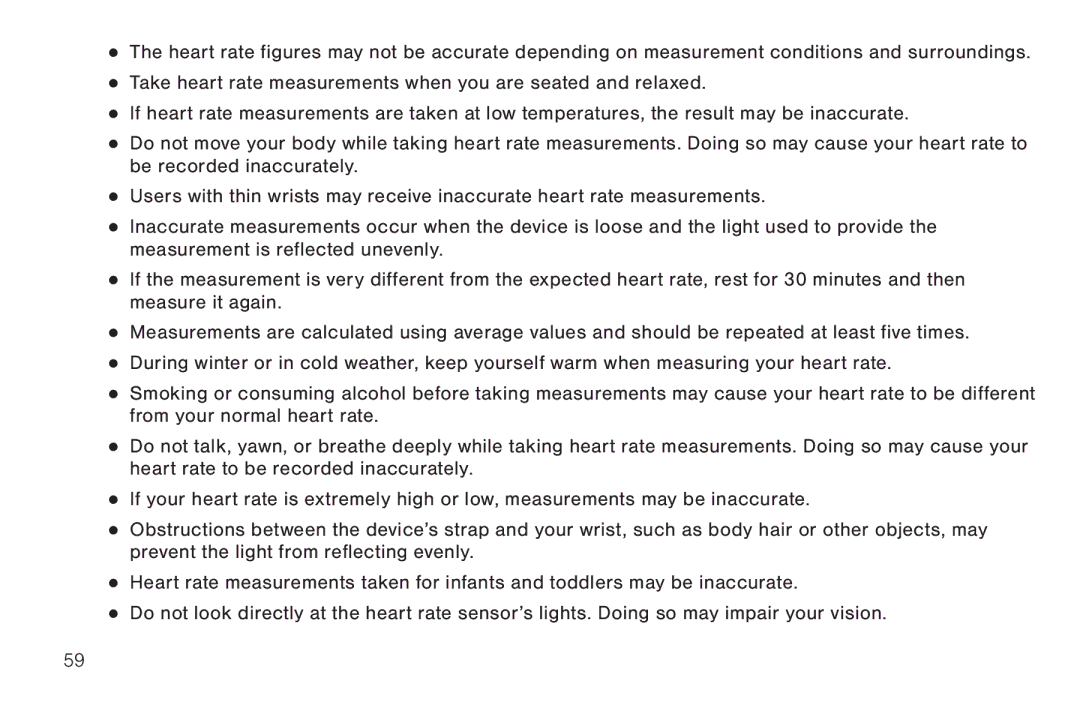●● The heart rate figures may not be accurate depending on measurement conditions and surroundings. ●● Take heart rate measurements when you are seated and relaxed.
●● If heart rate measurements are taken at low temperatures, the result may be inaccurate.
●● Do not move your body while taking heart rate measurements. Doing so may cause your heart rate to be recorded inaccurately.
●● Users with thin wrists may receive inaccurate heart rate measurements.
●● Inaccurate measurements occur when the device is loose and the light used to provide the measurement is reflected unevenly.
●● If the measurement is very different from the expected heart rate, rest for 30 minutes and then measure it again.
●● Measurements are calculated using average values and should be repeated at least five times. ●● During winter or in cold weather, keep yourself warm when measuring your heart rate.
●● Smoking or consuming alcohol before taking measurements may cause your heart rate to be different from your normal heart rate.
●● Do not talk, yawn, or breathe deeply while taking heart rate measurements. Doing so may cause your heart rate to be recorded inaccurately.
●● If your heart rate is extremely high or low, measurements may be inaccurate.
●● Obstructions between the device’s strap and your wrist, such as body hair or other objects, may prevent the light from reflecting evenly.
●● Heart rate measurements taken for infants and toddlers may be inaccurate.
●● Do not look directly at the heart rate sensor’s lights. Doing so may impair your vision.
59
